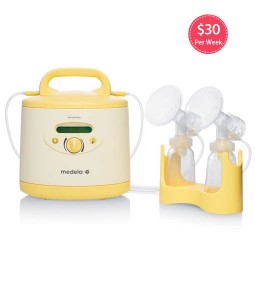When your baby is born, he or she starts to adapt to the new environment. Whilst some babies adapt quicker, others may take time. On average, a baby tends to fuss and this may be due to various reasons. It is usually when they become tired or cranky. If you are trying to distinguish what the cause may be, we are here to help. We look at the causes of fussiness, their nursing habits, and how to comfort a fussy baby.
What is a Fussy Baby Behaviour

On average, a baby will tend to get fussy at a certain time and usually this is routine. The way you decipher whether it is normal behaviour is based on the timing and the intensity of his or her fussiness and whether he or she responds to the usual methods of soothing.
This may include holding your baby, rocking, and breastfeeding. If your baby is usually content and not fussy throughout the rest of the day, we would say that this is normal fussy behaviour. This can be caused by being over-tired or over-stimulated, loneliness as well as some form of discomfort. The most common time for a baby to be fussy would be in the evening just before bedtime.
What Can Cause a Baby to be Fussy?
If your baby is being fussy, there may be many reasons like those that we mentioned before. One of most common would be being overtired, over stimulated or there being something causing him or her discomfort. It is important to investigate the causes to rule out the possibility of an illness. In the case of a colicky baby, the baby may feel discomfort as there is gas stuck in the abdomen. Usually other colic-like symptoms are caused by over-supply syndrome (foremilk-hindmilk imbalance) or forceful letdown when breastfeeding. Nursing mothers can opt to express breast milk using a reliable breast pump such as the Medela Symphony to avoid this. Other causes for fussiness may be a diaper rash, thrush, food insensitivities for babies who have been introduced to food or even food the nursing mother has had, nipple confusion, and even low milk supply.

How to Comfort a Fussy Baby
When your baby is fussy, once you have attempted to find out what the cause of the fussiness may be, you will look towards comforting your little one.
Start with your baby’s basic needs such as the following.
- Nursing your baby, breastfeeding or offering a bottle of expressed breast milk in the event of nursing issues.
- Burping your baby may also help with releasing intestinal discomfort.
- Changing the diaper or even removing clothing to make sure nothing is causing your baby discomfort is also advised (there may be instances where clothing or even a stray hair can be wound around their skin causing discomfort).

Next use a comforting touch by holding your baby, giving a back rub or massage, as well as rocking motions can greatly help. The colic hold is also ideal. This involves holding your baby across your forearm on his or her belly with your hand support the chest can help release gas. Another option would be lay your baby on her belly while gentling patting her back
Stay tuned for our next blog post on “Ways to Comfort Babies”! What works best for you and your baby? Let us know!
Image Credits: NHS, ILS Babycare, Flickr


